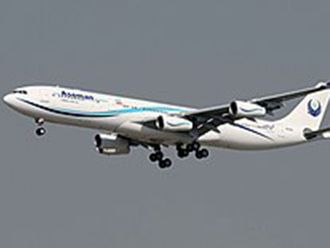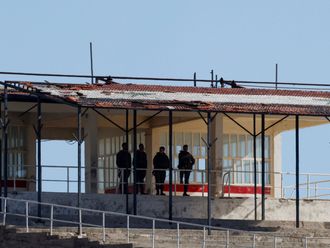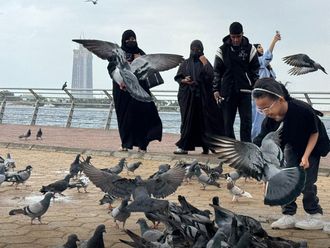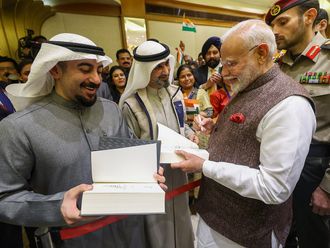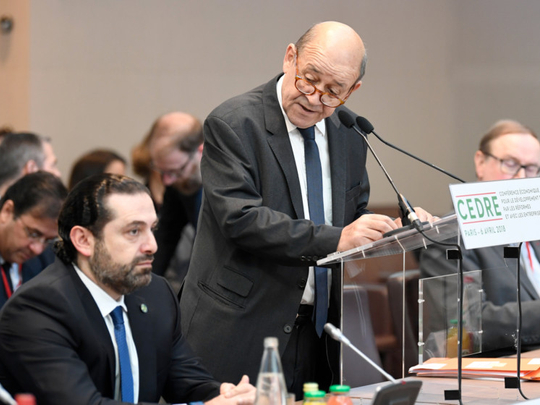
Paris: A senior adviser to Lebanon’s prime minister said on Friday countries had so far committed about $11 billion dollars in loans and grants during a conference aimed at supporting the country’s economy.
“So far, we are talking about $11 billion in concessionary loans and $800 million in grants,” Nadim Munla told reporters, adding that other major announcements would be made later in the day.
He said that included a $1 billion renewal of a credit line from Saudi Arabia that had not been used.
France said on Friday it will provide Lebanon 550 million euros ($672 million) to support economic reforms in a country struggling from the impact of the war in neighbouring Syria.
International donors are looking to hold Lebanon to promises of badly needed reforms at a Paris conference on Friday where the Beirut government hopes to win support for a $16 billion capital investment plan.
Lebanon has billed the conference as a show of international backing for a country hosting 1.5 million Syrian refugees and an economy hit by the fallout of Syria’s seven-year-old war.
“France will announce a substantial effort of 400 million euros in concessionary loans and 150 million euros in donations to match its ambitions for Lebanon,” Jean-Yves Le Drian told the opening of the conference.
Lebanon, which has one of the highest levels of state debt in the world, is hoping to secure support for the first phase of the capital investment plan, costed at $10 billion, to revamp infrastructure. Projects include roads, power generation capacity and public transport.
“We are a little country facing enormous political, economic and security challenges and these challenges are exacerbated by the war in Syria and the crisis of displaced Syrians in Lebanon,” Lebanon’s Prime Minister Sa’ad Hariri said, calling for substantial financial support from the international community.
“Lebanon’s recovery must start ... the challenge today is to reverse the (negative) trend in terms of growth, poverty and unemployment and the government must play the main role.”
Lebanon seeks one third of the support from private sector investment and the rest from grants and concessional funding.
But donors want to see Beirut follow through on reforms to curb levels of public debt that economists see as unsustainable.
The Paris conference, convening 50 countries and organisations, including Saudi Arabia, United States, Russia and Qatar, is expected to set up a follow-up mechanism to track progress.



